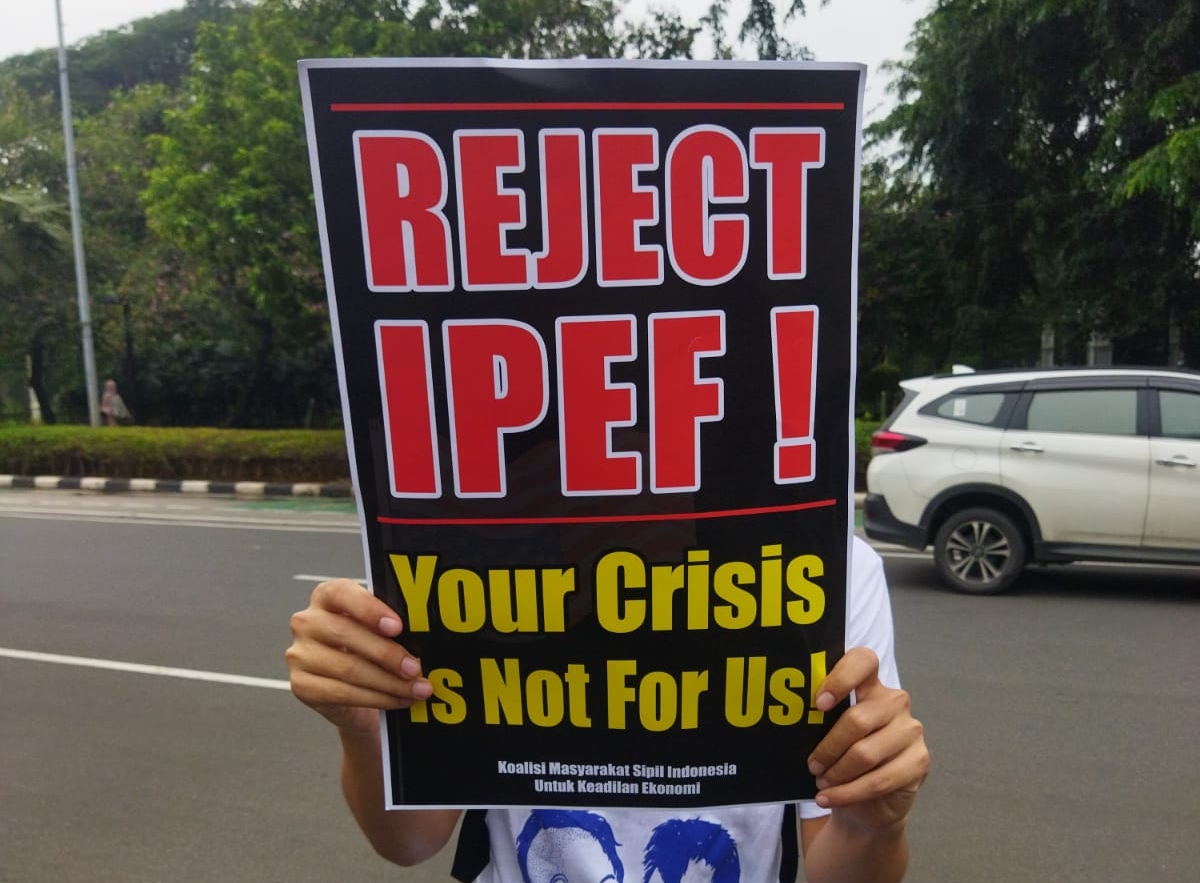Empty promises and prospects : The US-led economic agreement is a liability for Fiji
PANG | 26 May 2023
Empty promises and prospects : The US-led economic agreement is a liability for Fiji
This weekend in Detroit, Trade Ministers from eleven countries will be meeting for the latest round of negotiations on a secretive geopolitical and economic agreement aimed to curtail China. The agreement, known as the Indo-Pacific Economic Framework (IPEF) is a US-led initiative that wants to see convergence among a range of countries including Australia, New Zealand, India, Malaysia, among others and from the Pacific Islands, Fiji.
The IPEF is considered to be the U.S’s response to the increased engagement of China in the Pacific. As the White House stated last year “[China] is combining its economic, diplomatic, military, and technological might as it pursues a sphere of influence in the Indo-Pacific and seeks to become the world’s most influential power.” To counter this the U.S is seeking a coalition of countries to align and integrate their economies with the U.S.
The meeting of Ministers aims to iron out as much agreement as possible ahead of the US’s ultimate goal of announcing a complete outcome in November. The goal this weekend is to announce agreement on certain parts of the negotiations, this will be used to sell the benefits of the outcome and build pressure for the contentious areas like trade commitments.
The IPEF is currently being negotiated along four pillars : Trade (aimed at limiting government intervention in the economy) ; Supply Chains (becoming less reliant on China for supply chains) ; Clean Economy (promoting market-based responses to climate change) ; and Fair Economy (targeting corruption but also pro-corporate tax regimes).
However the exact content of the negotiations is under tight security and secrecy.
Prior to negotiations all countries were made to sign a non-disclosure agreement that bound them to not releasing any negotiating document until five years had passed after the outcome enters into force. This level of secrecy goes beyond what other trade negotiations, like the controversial Trans-Pacific Partnership, had required.
The level of secrecy does nothing to build trust about the agreement and removes the ability of civil society groups, including unions, health advocates, conservation groups, human rights organisations and Indigenous peoples from lending their expertise to ensure the outcome benefits people and communities. Instead in-person “listening sessions” are offered where participants have 5 minutes to make a presentation, despite not having seen the text of what is being negotiated, severely limiting what they can meaningfully contribute. Last year over 45 civil society groups from the IPEF member countries called out the lack of transparency in the process.
The secrecy also reinforces the hard politics of the negotiations. This is explicitly an attempt by the US to get greater alignment from other countries to its economy, undermining China’s role in supply chains and tilting the economic advantage back America’s way. Even though not all pillars of the agreement will appear to be binding on countries, the US has a domestic legal mechanism to unilaterally determine whether or not other countries are upholding their commitments, and if not single-handedly impose trade sanctions. This could mean that any agreement to non-enforceable commitments may see IPEF countries in fact be forced to implement.
For Pacific Small Island States like Fiji, there is little economic benefit from this undertaking as they are small players in supply chains and will end up with a burden of commitments to uphold and no new market access. If one takes at the issue of Digital Trade in IPEF, the US is aggressive in pushing its view of a governance regime that benefits its big-tech players, making it harder for developing countries to retain data sovereignty and control over their digital development.
Promises of funds coming to help countries like Fiji to implement any outcomes should be considered unlikely to arrive. As recently reported by Nic Maclellan, the US has a long history of promising money and than not delivering on account of domestic budget negotiations, often left to cut foreign, non-military spending. As such the US should not be trusted to deliver on any assistance promises and developing countries should make decisions accordingly.
Despite the lack of economic benefit this overt geopolitical alignment also carries considerable risk. Fiji, and many Pacific Island Countries, have deftly leveraged the majors powers interest in the region for their development benefits, through access to concessional loans, grants etc. This is largely premised on the “friends to all, enemies to none” unaligned position. Signing onto the IPEF, with its overt political aims, undermines the manoeuvrability of Fiji in an increasingly complex geopolitical space.
At the Ministerial there will be immense pressure for Ministers to agree to an outcome on the supply chains pillar. This is an agreement marked by its lack of transparency and economic benefit but also its geopolitical risks.
Adam Wolfenden is the Trade Justice Campaigner for the Pacific Network on Globalisation (PANG), a Pacific based NGO that envisions a Pacific where peoples’ rights to be self-determining, self reliant and self sufficient are recognised and upheld.






